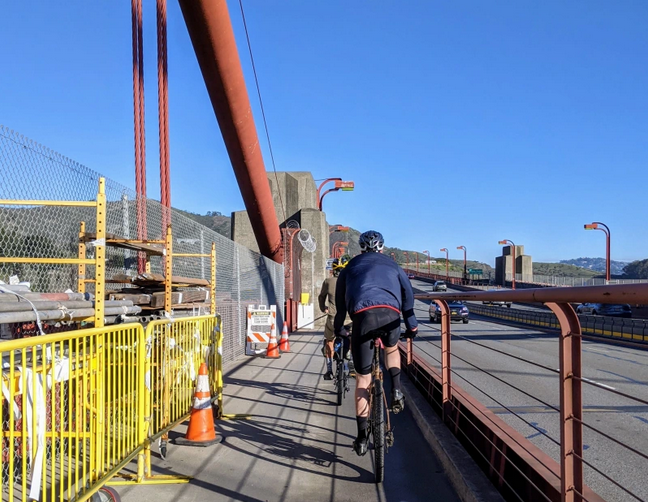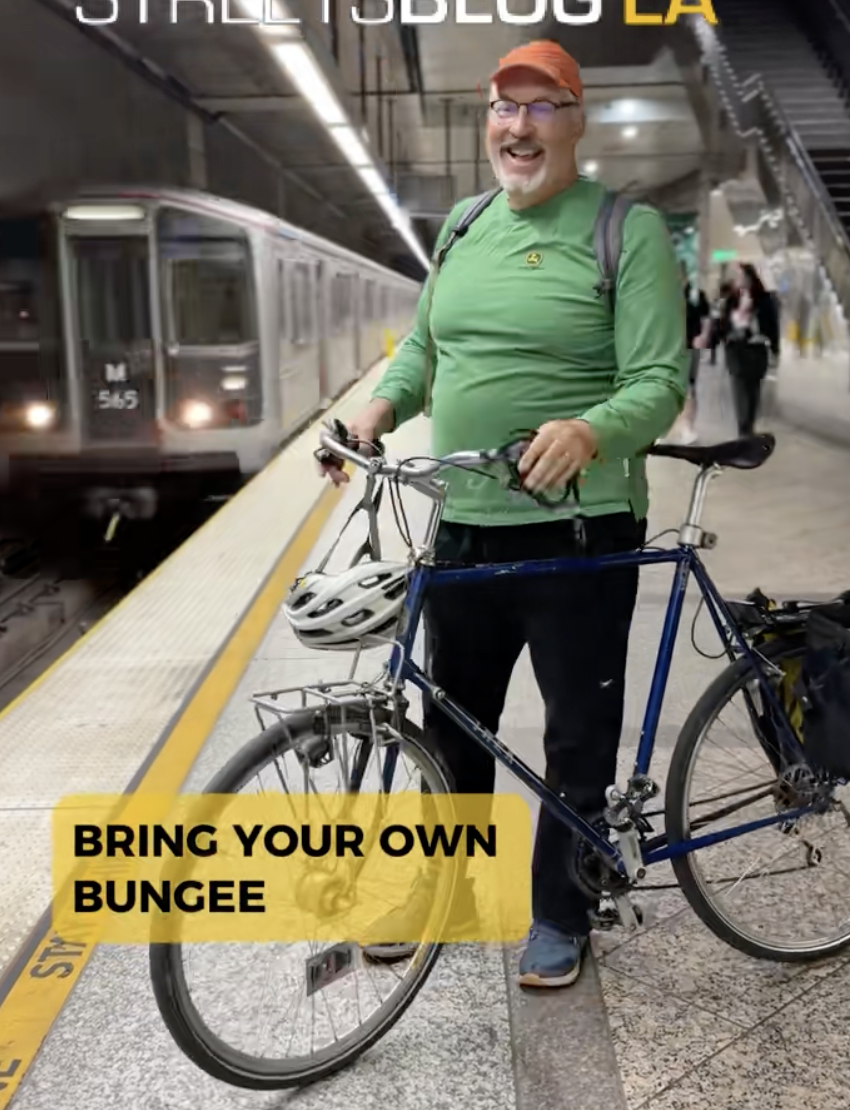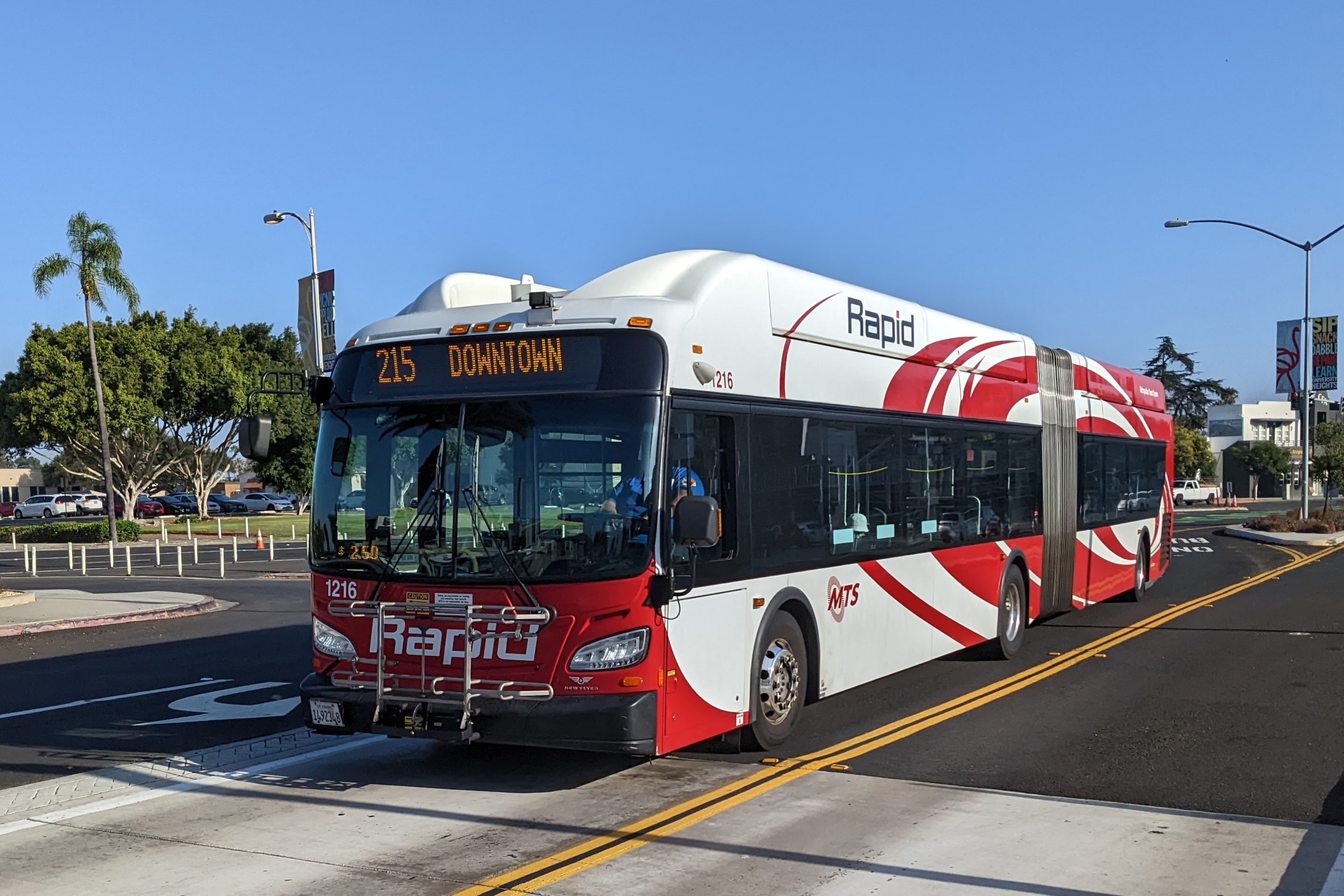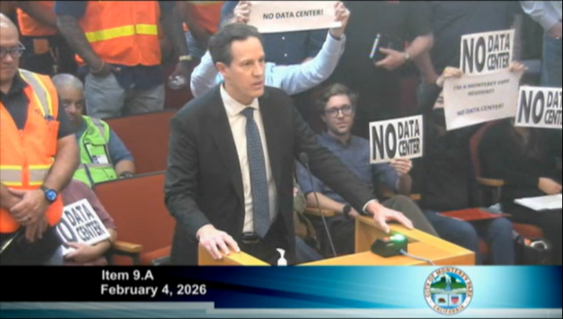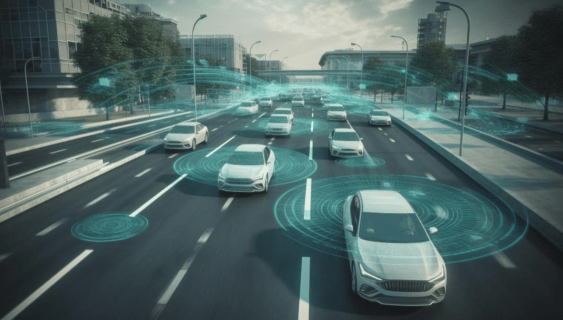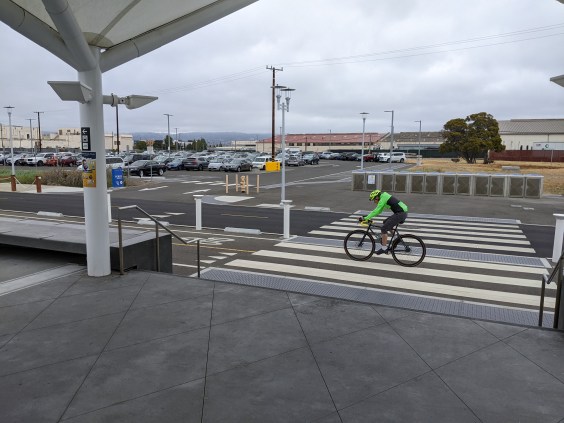The Senate Transportation Committee met today to discuss a number of bills. Among the ones that passed without discussion - on the consent calendar- is A.B. 2259, from Assemblymember Tasha Boerner, that would create a bicycle safety handbook at the DMV. That bill has passed all its committees so far in the same way.
Better Bikeways Faster
Also passed was A.B 2290, from Assemblymember Laura Friedman, which calls for a statewide quick-build program to encourage faster building of bike facilities and retrofitting of roads to make them safer for bike riders. The bill would also limit the use of Class III facilities - basically just sharrows or marked bike routes - that are funded by the state's Active Transportation Program to roads that are designed for 20 mph or less. At the hearing, Assemblymember Friedman said she would accept the committee's amendment to change that to 25 mph or less, based on a concern about several existing "safe, comfortable, and connected bicycle boulevard networks that would become ineligible under this requirement," although no examples of such were provided.
The bill would also require projects funded with Road Maintenance and Rehabilitation Program funding (from S.B. 1), including maintenance and safety projects, to incorporate bicycle facilities, thus requiring Caltrans to consider and comply with local plans. Caltrans estimates “potentially millions of transportation dollars [being dedicated] to bicycle facilities that might not otherwise receive funding," which sounds like a good thing.
"These are for projects that already have a lot of community support," said Assemblymember Friedman at the hearing. Encouraging faster building of quick-build projects - which use low-cost materials, require minor construction, and are meant to last between three and five years - can quickly bring the benefits of better bikeways to communities without having to wait for permanent capital projects. They can also be adjusted before final build.
A.B. 2290 would require Caltrans to complete at least one quick-build project in each of its twelve districts. Senator Catherine Blakespear, responding to the bill, said "We need to lean into quick-build more - it takes too long for permanent projects to go through the process. Quick-build should be more part of our arsenal than it is now."
E-bike Safety
A number of legislators have been trying to get ahead of safety concerns about e-bikes, specifically about children riding them. In the case of A.B. 2234, Assemblymember Boerner is proposing a geographically limited pilot program to allow the County of San Diego to create an ordinance that would ban anyone under twelve from operating any e-bike. (People under sixteen are already prohibited from operating Class 3 e-bikes, which can provide battery assistance up to 28 mph as long as a rider is pedaling.)
The author said she wrote the bill out of concern about rising injuries from children using this "increasingly common and environmentally friendly form of transportation." The bill also calls for a diversion program, wherein people cited under it can take an e-bike safety class in lieu of paying a fine.
Senator Bob Archuleta said to Boerner, "Walk me through this: An eleven-year-old boy is riding an e-bike, and pulled over. What happens?"
According to Boerner, the bill doesn't change how that situation would be handled. The bill's previous requirement for e-bike riders to have an ID had been removed. So "usually they'll try to call the parent, or the school, to confirm a person's identity, which is necessary to give a citation," she said.
"Would they confiscate the bike?" asked Archuleta. "Yes, as is done now," she replied.
The bill passed and will head to the Senate Appropriations Committee.
Ban on Bike and Pedestrian Tolls
Assemblymember Phil Ting has a bill, A.B. 2669, that would extend and make permanent a law he got passed almost ten years ago, when the Golden Gate Bridge Authority, suffering a budget crunch, was considering charging bike riders and pedestrians to cross the bridge. "We don't want any local authority to be tempted by that," said Ting. (It's not clear tolls on bike riders would make much money for a bridge authority, but they would certainly discourage commuting by biking or walking, which is not what the state should be doing.) The bill would apply to existing bridges with bicycle and pedestrian facilities, all of which are in the San Francisco Bay Area.
Pause on Planning to Reduce Greenhouse Gas Emissions
Assemblymember Laura Friedman's bill, A.B. 6, was scheduled to be presented today, but she did not do so. A.B. 6 was a bill from last year that was attempting to put some teeth into planning processes that purport to cut greenhouse gas emissions. Its latest iteration would have required regional Sustainable Communities Strategies to forecast development patterns that could reduce emissions from car and truck trips, among other things.
“As sometimes happens, there were still details to be worked out with A.B. 6," wrote Friedman in response to a question from Streetsblog. "To give us more time to address remaining concerns, I pulled A.B. 6 from consideration, but hope to move it forward after those substantive conversations have taken place.”
